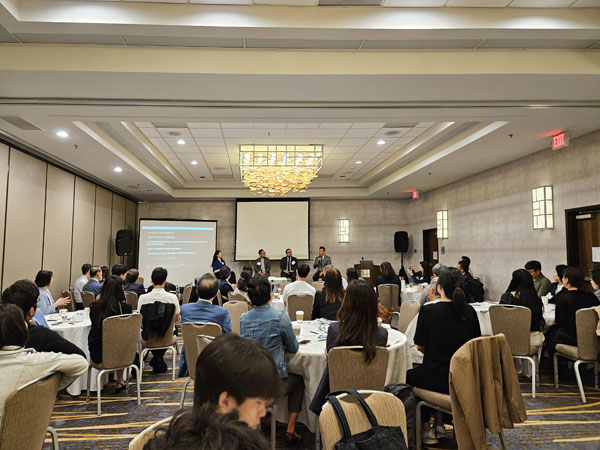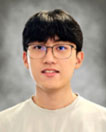The 2025 Korean American Town Hall meeting provides opportunity to connect

[Panelists are answering questions. Photo Credit: Yujun Lee]
Nearly 100 Korean Americans from across the Bay Area convened on June 7th, 2025, for the inaugural 2025 Korean American Town Hall meeting at the Crowne Plaza Hotel in Foster City, California.
The event was organized by the Consulate General of the Republic of Korea in San Francisco, the Korean American Community Services (KACS), the Korean American Community Foundation of San Francisco, and the Korean Community Center of the East Bay, with support from the Overseas Koreans Agency of the Korean government and the Silicon Valley Community Foundation.
Under the theme “Building Strength Together: What’s Changing and How We Can Take Action,” the meeting focused on how the Korean American community can work together to develop a greater, unified voice in today’s challenging circumstances.
The event also provided an opportunity for participants to build connections among Korean Americans across different professions.
Attendees came from diverse backgrounds, including diplomats, attorneys, and students from throughout the Bay Area.
Following registration from 9:30 a.m. to 10 a.m., Eunice Chun, the executive director of KACS gave a short welcome address.
Consul General Lim Jung-taek of the Republic of Korea in San Francisco then delivered the keynote speech, thanking participants and organizers for making the meeting possible.
He described the gathering as a valuable opportunity for Korean Americans to build solidarity and understanding.
Lim emphasized the role of the Consulate General: to protect the rights and ensure the safety of Koreans while sharing relevant and valuable information when needed.
Alan Parke, senior staff attorney at the Asian Law Alliance gave, followed with a presentation on current challenges facing the Korean American community.
Parke talked about recent changes in the government’s stance on immigration, noting that some Korean American community members have been affected, despite being legal residents.
Parke outlined several ways the community could mobilize to address these challenges.
The program continued with a panel discussion featuring Parke, Charles Jung, president of the Bar Association of San Francisco, and Isaac Kim, executive director of the Korean Resource Center.
The panelists were given five questions covering Korean American identity, ongoing community efforts, and strategies for maintaining hope during difficult times.
Through the discussions, all panelists emphasized the critical importance of advocating for a stronger sense of community to develop a unified voice that would enable the community to thrive.
Jung cited the 1992 Los Angeles riots as a cautionary example, explaining how Koreatown suffered heavier damage when it became a buffer zone during the unrest.
The Korean community faced extensive property damage because, as Jung noted, the Korean American community was simply “voiceless and powerless.”
The panelists agreed that stronger community participation is essential to prevent future losses and secure community members’ interests.
Following the panel discussions were breakout sessions where participants formed groups around shared interests to discuss current and potential future efforts.
Discussion topics were seniors, families, mixed-status households, education, small businesses, faith communities, immigration, social services, and local solidarity.
During the whole-group share-out that concluded the breakout sessions, a key theme emerged: the need for better communication platforms.
Participants identified notable disconnections between age groups, professions, and interests, which currently hinder community integration and effectiveness.
The meeting came to an end with a quick survey and a networking lunch that provided additional opportunities for participants to connect.

- Yujun Lee / Grade 11
- Homestead High School

![THE HERALD STUDENT REPORTERS [US]](/assets/images/logo_student_us.png)
![THE HERALD STUDENT REPORTERS [Canada]](/assets/images/logo_student_ca.png)
